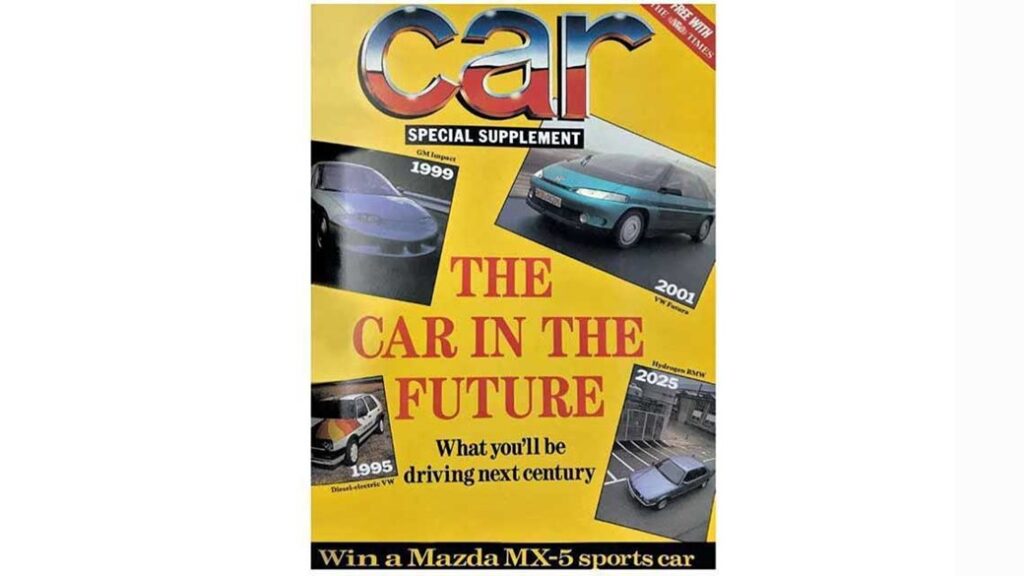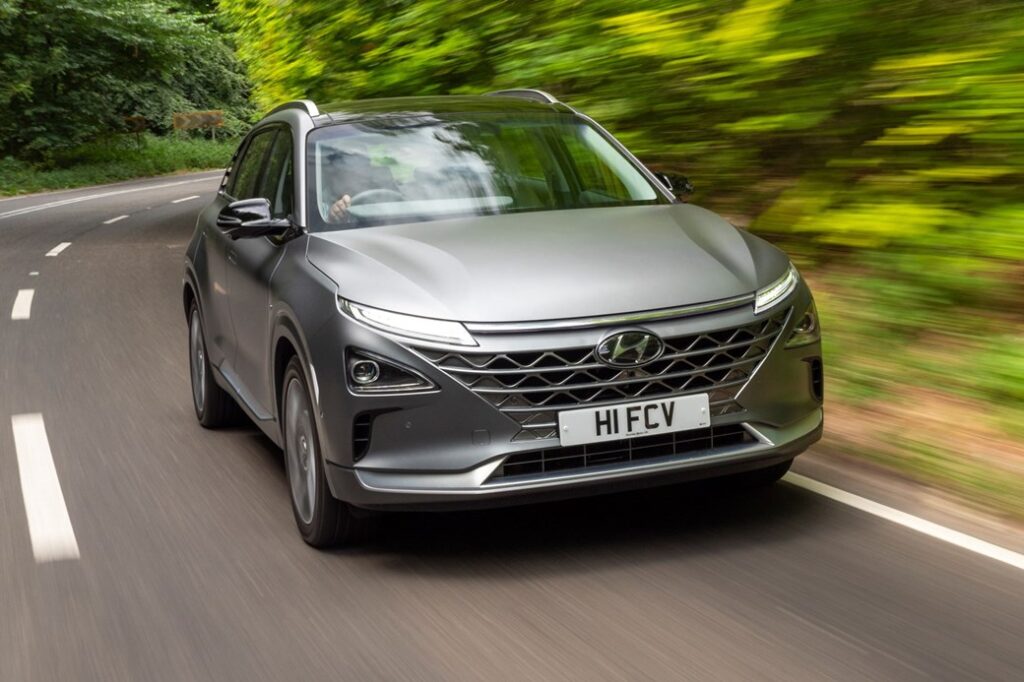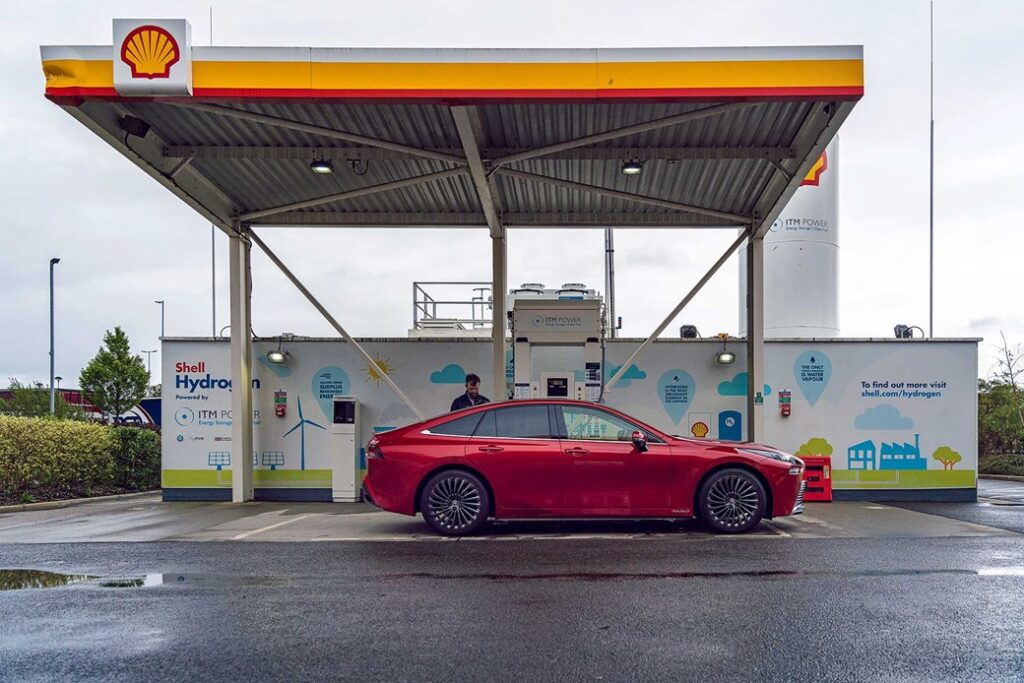
Hydrogen Fuel-Cell Cars: Shaping the Future of Transportation in the Automotive Industry?
Environmental concerns are propelling innovation in the automotive industry, where the potential of hydrogen fuel-cell technology is gaining momentum as a transformative force for our roads.

With electric cars becoming more popular, you might think that regular electric cars with batteries have already won, and other types like hydrogen cars have lost. But it’s not that simple.
The future of how cars get their power is still up in the air. Life is not always just one way or the other, and we haven’t made a final decision about how cars will be fueled in the future.
Don’t be unsure about it: some car makers think that cars running on hydrogen could still be part of the future, even if it’s a bit different. On top of that, man-made biofuels might help regular gas & diesel cars stick around.
At the same time, cars that use a mix of different technologies, like hybrids and autogas, are still being looked at by engineers.
They’re trying out lots of ideas to find the best way to make cars cleaner without giving up what people want.
This article explores if hydrogen cars could really work and talks about the chances and challenges for more people to start using them. It’s all about figuring out if fuel-cell cars are going to be the way forward.
How viable are hydrogen cars?
For many years, hydrogen fuel-cell cars have faced a dilemma – which comes first, the cars or the infrastructure?
Should they be introduced before there’s a proper network of hydrogen refueling pumps, or should the pumps be set up first to create demand?
CAR magazine readers who have been following the discussions about hydrogen in the automotive world might recognise these debates. Our supplement, “The Car In The Future,” addressed the potential of hydrogen cars as far back as the summer of 1990.

Our correspondent Roger Bell accurately predicted the future when he tested a hydrogen-powered BMW 7-Series prototype in Munich, stating, ‘Hydrogen power is not just round the corner.’
More than 30 years later, we’re still uncertain if the revolution is about to happen or if it’s a long way off.
Fuel-cell cars you can buy today
Jump ahead three decades, and presently, there are only two hydrogen-powered cars available for purchase in the UK.
These are a pair of fuel-cell models mainly designed for corporate users who probably have easy access to hydrogen.
The Toyota Mirai is priced starting at £49,995, and the Hyundai Nexo costs £69,495. Prices could be reason why they haven’t become widely popular.
However, despite the challenges, many manufacturers continue to work on developing fuel-cell vehicles, believing that the various advantages they offer are valuable for a future with multiple fuel options.

Several carmakers, including BMW, Jaguar Land Rover, Mercedes-Benz, and Renault, continue to explore hydrogen technology.
Stellantis has gone a step further by offering a range of plug-in hybrid hydrogen vans for sale in Europe.
Moreover, there are exciting performance concepts entering the scene, such as the 2022 Alpine Alpenglow, featuring a hydrogen combustion engine, a GR Yaris prototype, and an experimental BAC Mono.
These developments showcase a growing interest in incorporating hydrogen technology across various segments of the automotive industry.
What are hydrogen fuel cell cars?
Hydrogen fuel-cell cars are essentially electric cars at their core. The key difference lies in how they store their energy onboard, setting them apart from pure electric vehicles (EVs). This is where the strengths and weaknesses of the hydrogen (H2) brigade come into play.
Advantages of Hydrogen Fuel-Cell Cars:
- Clean Tailpipe Emissions: Only emissions produced are water, contributing to cleaner air.
- Quick Refueling: Refuels as rapidly as traditional petrol or diesel cars, offering convenience.
- Potential for Longer Range: Possibility of achieving longer distances compared to current battery technology.
- Avoidance of Heavy Batteries: Eliminates the requirement for heavy and bulky onboard batteries, aiding in weight reduction.
- Proven & Mechanically Simple Technology: Well-established technology with straightforward mechanical components, enhancing reliability.
Disadvantages of Hydrogen Cars:
- Limited Refueling Infrastructure: Currently, there is a sparse network of refueling stations, with only 11 open to British public in early 2022.
- High Technology Costs: Hydrogen technology remains expensive, often surpassing the costs of battery electric vehicles.
- Lower Efficiency than BEVs: Fuel-cell cars are not as efficient in terms of well-to-wheel energy usage when compared to battery electric vehicles (BEVs).
- Cleanliness Depends on Hydrogen Production: The environmental cleanliness of hydrogen cars is contingent on how the hydrogen fuel is produced, influencing the overall sustainability of the technology.
One important thing people sometimes forget in the fuel talk is how clean hydrogen is depends on how it’s made.
Let’s break it down in simpler terms: there’s ‘brown hydrogen’ made from coal or lignite, ‘grey hydrogen’ made using natural gas, ‘blue hydrogen’ made from natural gas but cleaned using a process called carbon capture & storage, & ‘green hydrogen’ produced by using renewable energy to split water.

Talking about hydrogen in cars becomes even more interesting when we focus on green hydrogen.
There’s a new £240 million government fund called the Net Zero Hydrogen Fund (NZHF) aimed at encouraging the production of environmentally friendly hydrogen in Britain.
Keep an eye on companies like ITM Power, Johnson Matthey, and Ceres Power—they’re at forefront of developing clean hydrogen technology here.
Will hydrogen fuel-cells ever take off?
For hydrogen to become a practical fuel for widespread transportation in many Western countries, there would need to be significant shift in energy sources.
Currently, the UK lacks the necessary infrastructure for widespread adoption, but this could change with substantial investment and guidance from both the government and the industry.
In the summer of 2021, the UK Hydrogen Strategy was released, outlining the government’s goal to generate 5GW of clean hydrogen by 2030.
There are plans for a hydrogen-powered economy that prioritises hydrogen for specific tasks, such as powering trucks, some buses, cars, & even home boilers. This strategy aligns with the UK’s commitment to achieve net-zero emissions by 2050.

The document outlines the future of hydrogen in the UK: “We anticipate that role of hydrogen in transportation will develop throughout 2020s & beyond.
Until now, hydrogen has found a significant early market in road transport in the UK. Moving forward, we anticipate that hydrogen-powered vehicles, especially those used at depots such as buses, will make up the majority of hydrogen demand from the mobility sector in the 2020s.
Hydrogen-powered buses have a similar range to their diesel counterparts. Because they return to a central depot, the hydrogen refueling infrastructure can be more centralised and is likely to work well with the expected distributed hydrogen production during this period.”
But what about hydrogen cars? Or is H2 only going to power commercial vehicles?
Politicians predict that hydrogen will be mainly used in heavy goods vehicles. They plan to conduct research and innovation activities focusing on challenging-to-decarbonise transportation, especially heavy road freight.
As we learn more from larger-scale applications, we may see a variety of transport uses in the late 2020s and early 2030s.
By 2030, hydrogen is expected to be in use across various transport modes, including heavy goods vehicles (HGVs), buses, and trains, with initial applications in commercial shipping and aviation.
The government’s analysis suggests a potential demand for up to 6 terawatt-hours of low-carbon hydrogen for transport in 2030.
Interestingly, even the government’s white paper doesn’t foresee widespread adoption among private car users.
However, this doesn’t deter forward-thinking global car manufacturers from exploring hydrogen’s potential.
The key is to ensure that policymakers shaping the country’s infrastructure align with industrialists planning the next generation of cars.
Cooperation between these two groups is crucial for the successful integration of hydrogen technology into the transportation sector.
Never miss any important news. Subscribe to our newsletter.
Related News


British Investor Who Predicted US Slump Warns of Next Crash

I’m a Death Doula: 4 Reasons I Believe Death Isn’t the End


Tech to Reverse Climate Change & Revive Extinct Species

AI Unlocks the Brain’s Intelligence Pathways

XPENG Unveils Iron Robot with 60 Human-like Joints

Can AI Outsmart Humanity?

11 ChatGPT Prompts to Boost Your Personal Brand

Keir Starmer Hints at Possible Tax Hikes on Asset Income

Navigating the Future of AI: Insights from Eric Schmidt
